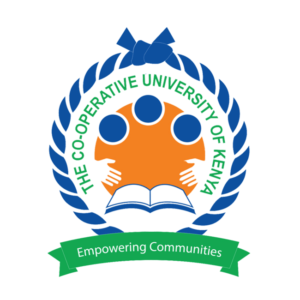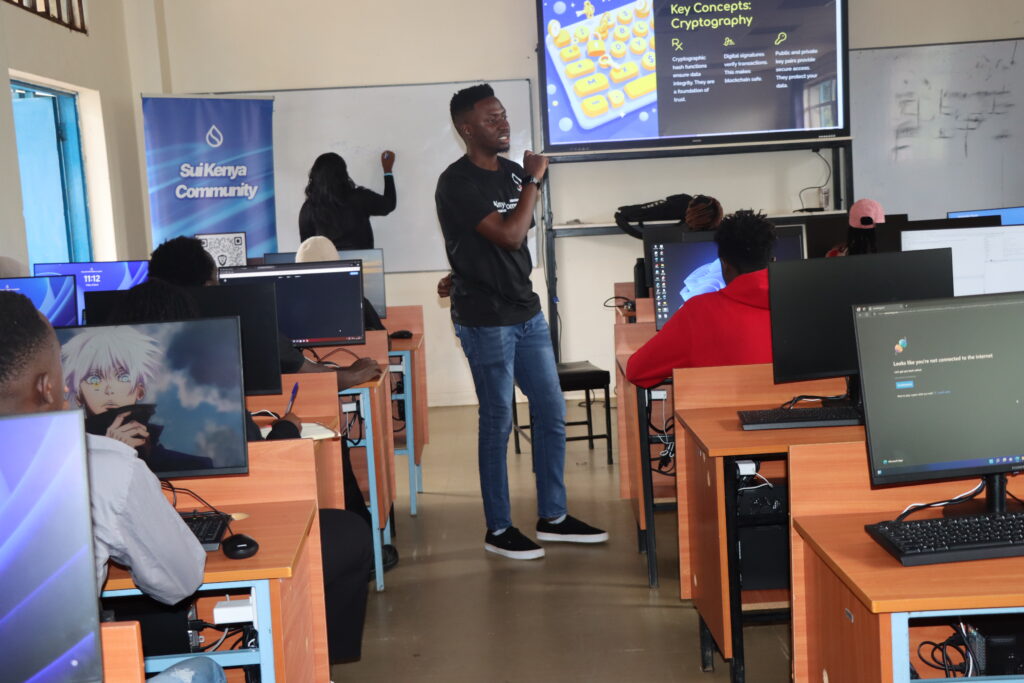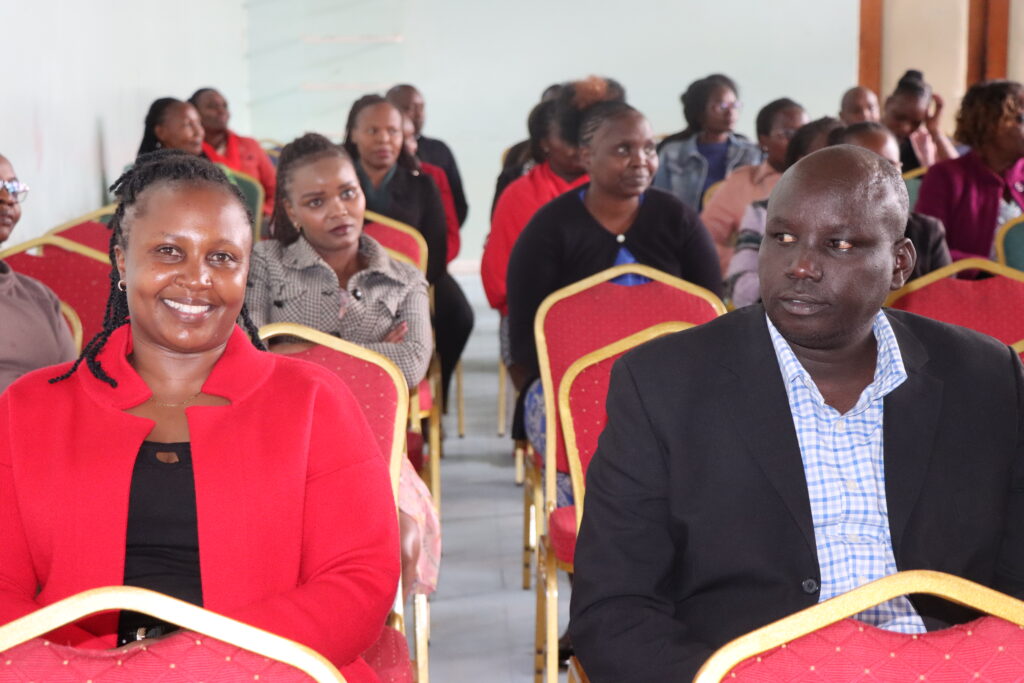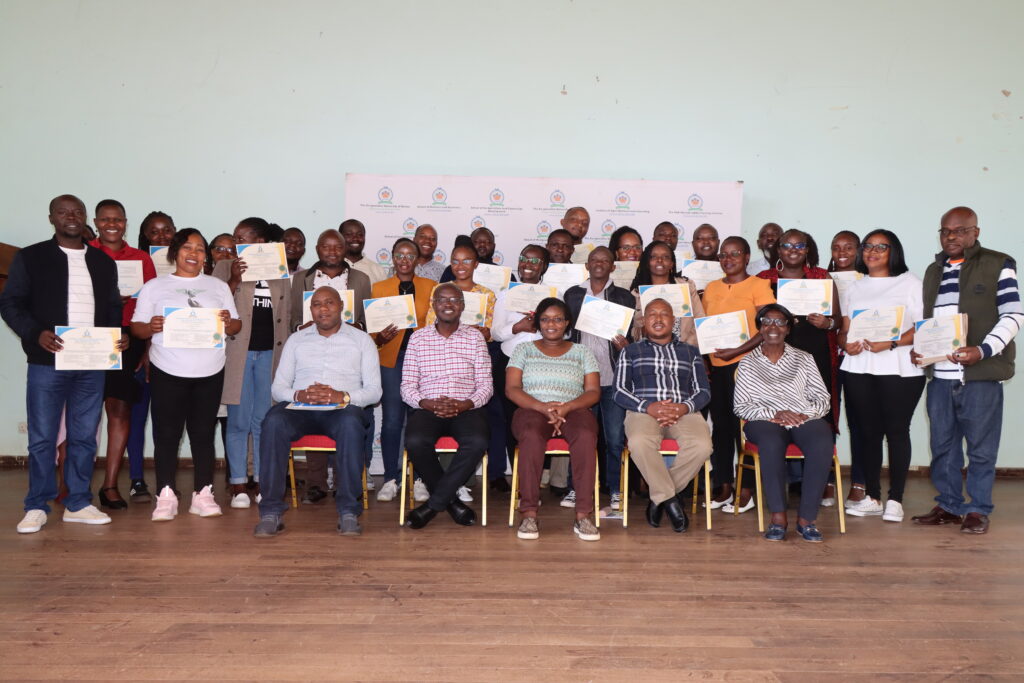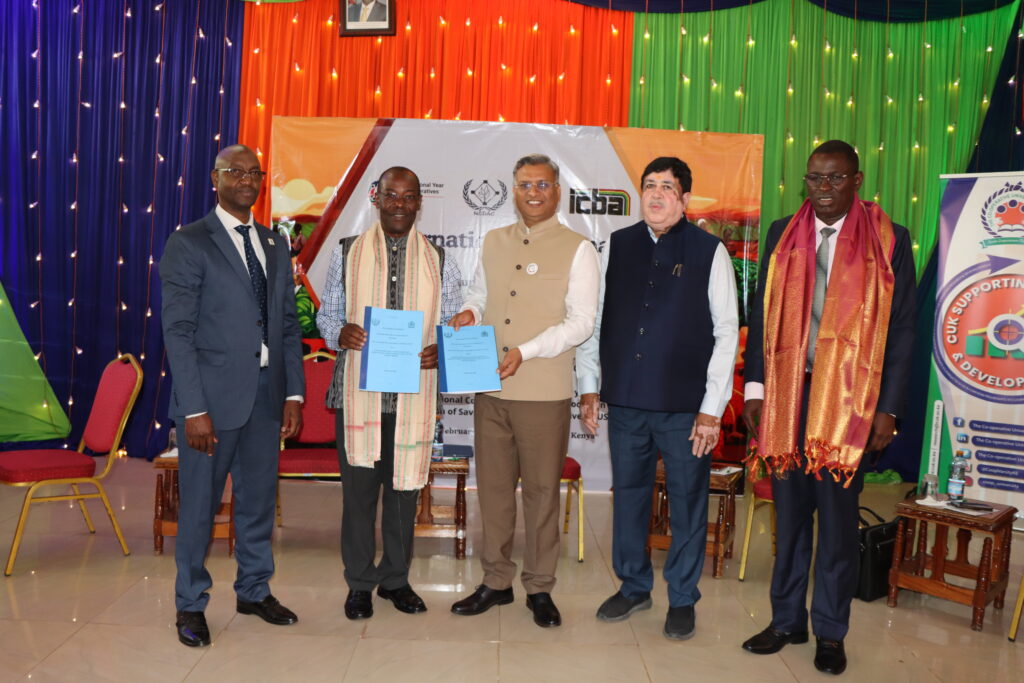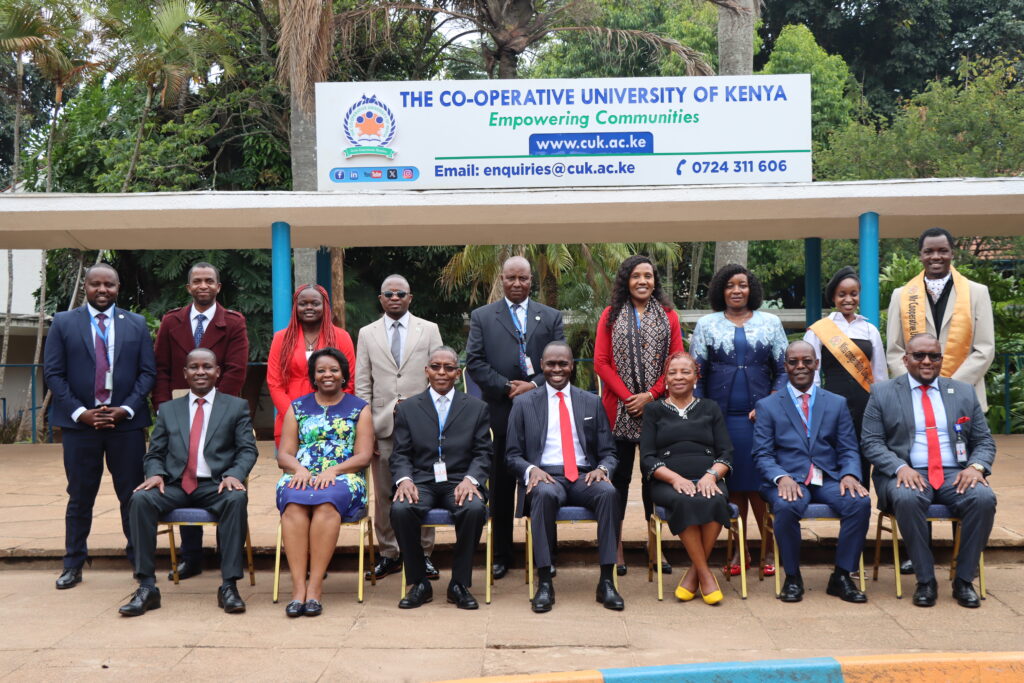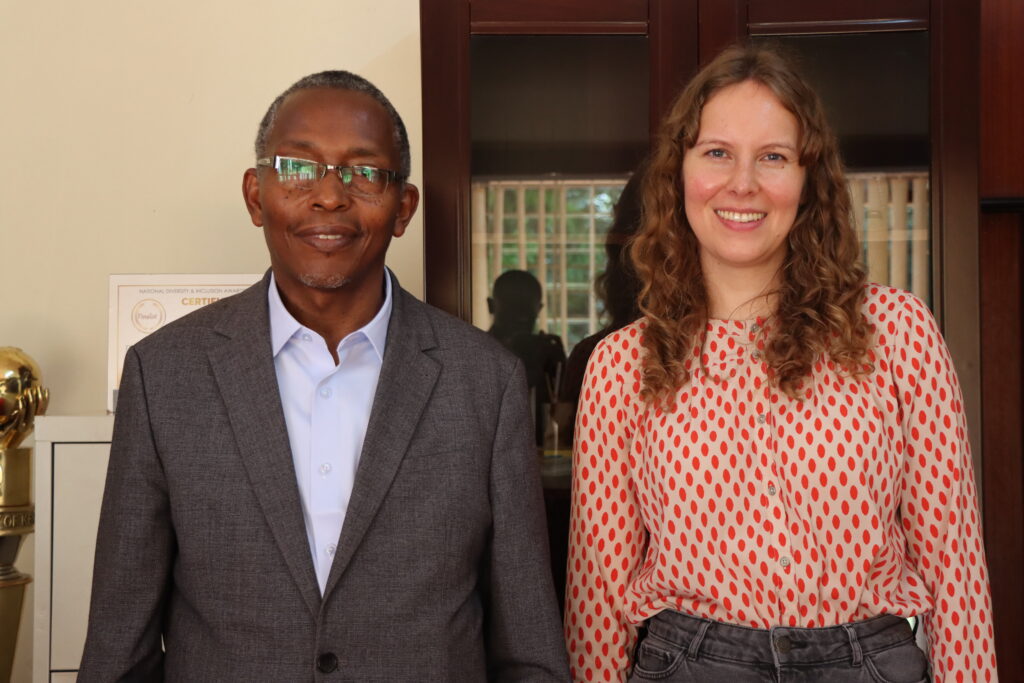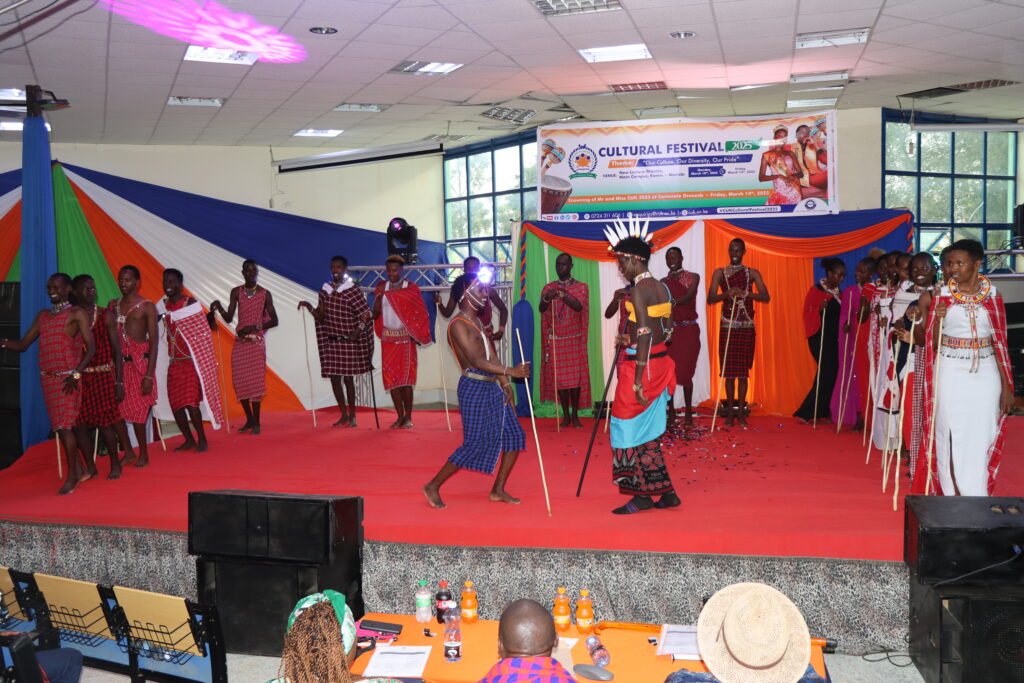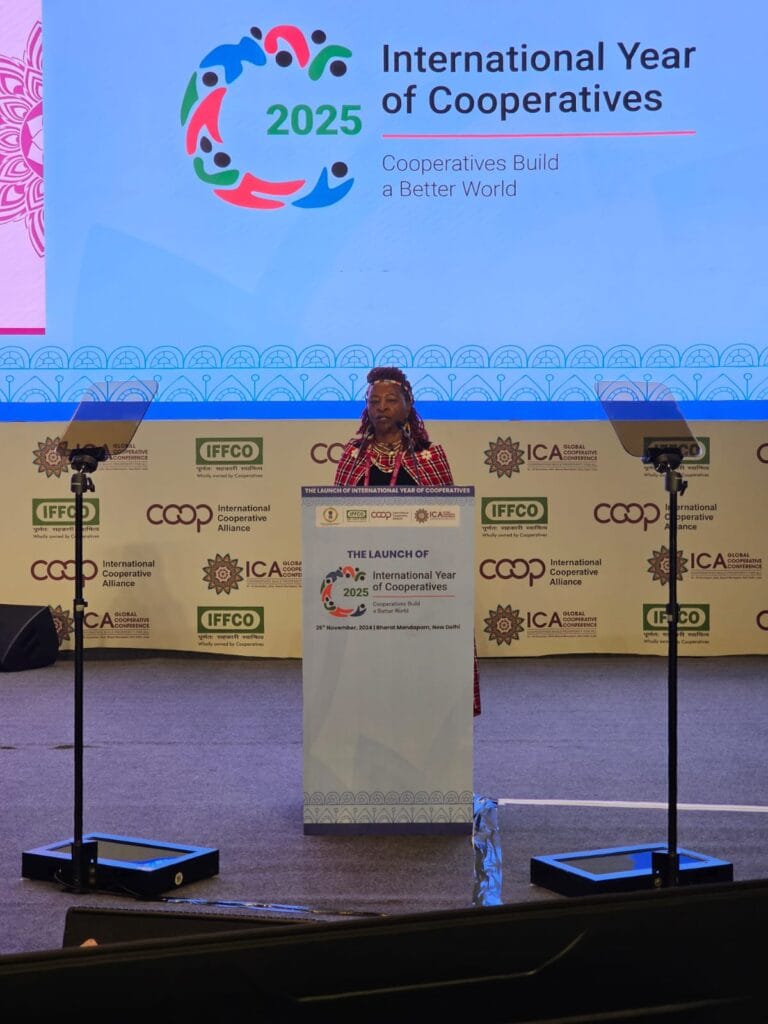By Meshack M. Ngangi | January 30, 2025 The Co-operative University of Kenya’s community was excited as it welcomed the newly appointed Chancellor, Dr. Bernard William Chitunga, on his inaugural visit. This was no ordinary occasion—it was a homecoming filled with emotion, nostalgia, and an inspiring reminder of the power of perseverance. Once a junior staff member serving as an Assistant Programmes Officer at the University’s Agri and Co-operative Training and Consultancy (ATC) Services Ltd, the Chancellor’s rise to the titular head of the institution was a testament to dedication and growth. His return was met with admiration, pride, and an overwhelming feeling of possibility for both staff and students. The Chancellor’s appointment, effective 10th January 2025, was made by His Excellency Dr. William Samoei Ruto, President of the Republic of Kenya, and officially gazetted, marking a significant milestone in his distinguished career. He is the second Chancellor to be appointed since the university was chartered in October 2016, succeeding the late Hon. Joseph Nyagah, the institution’s inaugural Chancellor. His leadership is expected to usher in a new era of transformation and excellence for CUK. Beyond his zeal to elevate the institution’s status, Dr. Bernard William Chitunga has established strong international ties with world economic powers such as China. These connections are expected to open doors for strategic partnerships, research collaborations, and infrastructural advancements that will further elevate the university’s global standing. Before this role, he served as Head of Partnerships, Donors, and Special Projects at the African Development Bank (AfDB), showcasing his exceptional leadership across Africa. With a passion for education and development, Dr. Chitunga’s academic journey culminated with a doctoral thesis at Selinus University. His motto, “Son of Chegulo and Africa,” reflects his deep connection to his heritage and his commitment to advancing Africa’s progress. Dr. Chitunga envisions establishing strong partnerships for infrastructural and academic developments, ensuring the university remains at the forefront of innovation and excellence. The Chancellor was met with enthusiastic applause as he arrived on campus, greeted by the university’s Vice-Chancellor Prof. Kamau Ngamau, Deputy Vice-Chancellor—Finance, Planning, and Administration Prof. Esther Gicheru, Deputy Vice-Chancellor—Academic, Co-operative Development, Research, and Innovation Prof. Isaac K. Nyamongo, senior management, faculty members, and staff. The atmosphere was electric as colleagues and former mentors exchanged warm words, reflecting on his early days within the institution. Many long-serving employees fondly shared memories of working alongside him, recalling his commitment, attention to detail, and the camaraderie he fostered. As the Chancellor walked through the university’s halls, now in a position of leadership, the moment underscored a remarkable full-circle journey. During his tour of the university’s key facilities—including lecture halls, the cutting-edge environmental laboratories for the School of Co-operative and Community Development, advanced computer laboratories in the School of Computing and Mathematics, and outstanding Agri and Co-operative Training and Consultancy (ATC) Services Ltd—the Chancellor made it a priority to engage with staff. He listened intently to their concerns, celebrated their successes, and reassured them of his commitment to advancing the university’s academic and infrastructural growth. One of the most significant moments of the visit was the Chancellor’s meeting with the University Council. In an impactful speech, Dr. Bernard W. Chitunga spoke about the need for cooperative courage—the ability to stand together in the face of challenges, embrace opportunities, and collaborate toward common goals and the achievement of the University’s mission. He emphasized that the future of The Co-operative University of Kenya depends on teamwork, adaptability, and a shared vision of excellence, the very tenets that form the foundation upon which our core values are derived. In the discourses, the Chancellor emphasized harnessing the “cooperative courage” to scale up the University to incredible heights of excellence as a world-class institution of higher learning. Present at the meeting were Council Members: Ms. Christine Kariuki, a representative of the PS State Department for Higher Education and Research; Ms. Susan Kariuki, a representative of the PS National Treasury; Ms. Elizabeth Kimkung; Mr. John W. Kihara; Ms. Peris Onsarigo, Mr. Christopher Ogechi Ombati, the Council Secretary & Vice Chancellor Prof. Kamau Ngamau, PhD, EBS. Additionally, the Chancellor addressed pressing concerns related to facilities and infrastructure, highlighting the need for continued investment in modernizing classrooms, laboratories, and student accommodations. Dr. Chitunga emphasized that a university’s strength is not only in its people but also in its ability to provide cutting-edge resources that foster innovation and academic excellence. Perhaps the most moving part of the visit was the Chancellor’s speech to the staff. His words resonated deeply as he recounted his journey from a junior staff member to his current role. He reflected on the values that shaped him—hard work, perseverance, and an unwavering belief in education’s transformative power. “Standing before you today, I am reminded of my humble beginnings within these very walls. This journey has been one of resilience and continuous learning. Let this be a reminder that every role in this institution, no matter how small it may seem, is significant in building a thriving academic environment,” said the Chancellor, Dr. Bernard William Chitunga. His words were met with nods of agreement and bursts of applause as staff members felt both seen and inspired. He went on to outline his vision for the university, pledging to champion academic excellence, prioritize staff development, and advocate for improved welfare. He assured everyone that his leadership would focus on fostering a collaborative, inclusive, and empowering work environment. In addition to discussing cooperative courage, the Chancellor also spoke passionately about cooperative genius—the collective intelligence and creativity that emerge when individuals work together toward a shared vision of CUK. He encouraged staff to harness their diverse skills and ideas to drive innovation and excellence, and make The Co-operative University of Kenya a university of excellence in education, research, innovation, and cooperative training.
